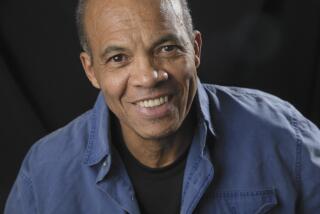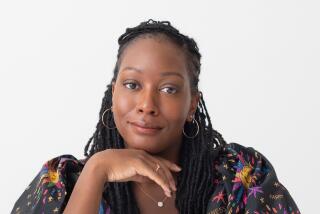Unchain my heart
OF the many cultural debates that consume black America, none is more significant and more maligned than that over the legacy of slavery. Most black people are descended from slaves, yet many are loath to even say the word -- to claim it, as it were. The reasons why are complicated but include a tendency to equate any discussion of slavery with promoting black victimhood, as well as a black survivalist impulse (forged by slavery, of course) to stay focused on the positive and a general American desire to shed a discomfiting, irreconcilable past and move on.
The spiritual and political importance of remembering has always had its advocates, however, from the activist and former slave Frederick Douglass to a small but vocal group of blacks organizing around reparations today. Even those who claim to have no use for revisiting slavery wouldn’t mind knowing exactly where and who they come from, and many more hope that such self-knowledge might help solve a litany of modern woes. Yet the epic story of slavery and the slave trade is rarely viewed through a human lens but more often left to historians, academics and hasty presentations during Black History Month. When it comes to popular culture, meanwhile, slavery remains more palatable as fiction -- in the works of writers like Harriet Beecher Stowe, August Wilson and Toni Morrison -- than as historical reality.
In “Lose Your Mother,” which documents one woman’s attempt to reach back beyond slavery and make the Africa-America connection, Saidiya Hartman melds ugly reality with the lyricism of literature to come up with a new paradigm. A professor at Columbia University, Hartman describes herself as a Type A intellectual who rebelled early against what she saw as white bourgeois values and became determined to build a more African -- that is, a truer -- identity. She ditched her “slave” name and took an African one. Delving into her own family history in Alabama, with its faint memories of slavery, was part of an ongoing effort to preserve and expand that identity.
Here, Hartman takes that effort to its logical conclusion by planning an extensive stay in Ghana, not simply to commune with long-lost brothers but also to retrace the stops of a major slave route that once ran from the African nation’s hinterlands to the ocean. Hartman is idealistic but not naive: She knows that one of the more unsavory facts about the slave business is that many Africans participated in it, trading their brethren to the Europeans for cowrie shells and even keeping slaves themselves. Still, she hopes to find closure amid the contradictions, a psychological resting place that has seemed eternally out of reach. Her visit to Africa is the heart of the process -- not only because that’s where it all began but also because, like many black folks, Hartman refuses to believe America is all there is.
America may not be all there is, Hartman discovers, but Africa, far from closure, ultimately offers more of the same. Instead of salving ancient wounds, Ghana opens up new ones. Hartman wants to resist that realization, but as a scholar and truth seeker, she has no choice but to go with the facts. By facts, I don’t mean simply the pervasiveness of the slave trade among Africans, who divided complex societies not by race but by kinship, geography and social status, with slaves occupying the lowest rung. No, the most devastating facts are those Hartman feels in her bones as she’s received by people she is eager to see as kin but who treat her like one more misguided, slavery-obsessed tourist. In the end, she has no choice but to recognize that the Ghanaians are often no more interested in revisiting slavery than the people back home in Manhattan.
Hartman is hardly the first black American to go “back” to Africa seeking a measure of personal and historical salvation. But she charts her heartbreak at not finding it with a meticulous honesty and mix of emotions -- anger, grief, bewilderment, contempt -- that feel distinctly 21st century. Although her book gets weighted down at points by historical detail and a tendency to over-explain, the urgency of her mission is unmistakable. As that mission fails and doubt takes hold, things get more emotionally involving; we feel invested in the failure too. “I trudged from one side of the dungeon to the other; each step I took was tottering and indecisive,” she writes of her visit to a dungeon where slaves were held during their own arduous journey. “My hands glided over the walls, as though the rough surfaces were a script that I could read through my dull fingers. But the brush of my hands against stone offered no hint or clue.”
That’s a far cry from Oprah’s triumphant visit to South Africa, or Illinois Sen. Barack Obama’s eloquently extolling Kenya, the land of his father. Yet Hartman is not trying to malign Africa, simply to align it. She humanizes it, though not in the way she had imagined -- plumbing the Africans’ own rich memory to build a grand, sympathetic narrative of slavery where none existed before. When the Africans she meets resist this notion, the challenge is to push through her resentment and listen to what they have to say.
What Hartman hears and sees are ironies ranging from the poignant to the absurd, such as poverty-stricken Ghana’s attempt to cash in on the whole “back to Africa” phenomenon to create American-style opportunities for itself. “Every town or village had an atrocity to promote -- a mass grave, an auction block, a slave river, a massacre,” Hartman writes. “It was Ghana’s equivalent to a fried chicken franchise.... Few of the tour operators, docents, and guides put any stock in the potted history of the ‘white man’s barbarism’ and the ‘crimes against humanity’ that they marketed to black tourists or believed the Atlantic slave trade had anything to do with them. They only hoped that slavery would make them prosperous.” She finds the most fellowship with other black Americans who, like her, have come in search of the missing link but are struggling with the idea that there is no there here. Talking with a filmmaker from Atlanta named Khalid, Hartman observes that the poor in Ghana are less defeated than those in war-racked countries such as Congo or Sierra Leone. Perhaps, she reasons, they haven’t lost all reason for hope. “They didn’t lose everything,” Khalid reminds her. “We did.”
It’s a table-turning moment among many in “Lose Your Mother,” which is full of epiphanies even though Hartman resolves to accept the disappointment of being an obruni -- a foreigner and outsider -- in her truly native land. But that doesn’t mean Africa has no meaning. This is a romance gone not sour but sober; Hartman loses her innocence but not her conviction that Africa is the center of a great story still waiting to be told.
The tragedy -- and the awakening -- is that slavery is mostly a story told by Americans, that the black American experience is more unique and self-contained than she ever knew. The common transatlantic experiences of slavery and oppression did not automatically coalesce into the great We of the black American political imagination. But it is imagination that, remarkably, still burns after all these years. Beneath Hartman’s despair over losing mother Africa is a very American determination to keep looking. *
More to Read
The biggest entertainment stories
Get our big stories about Hollywood, film, television, music, arts, culture and more right in your inbox as soon as they publish.
You may occasionally receive promotional content from the Los Angeles Times.










